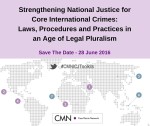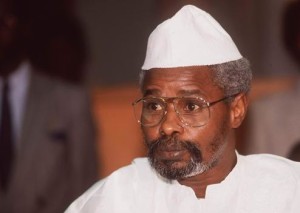Over the past decades, international criminal tribunals and courts have convicted over 150 perpetrators of genocide, crimes against humanity and war crimes. International convicts serve their sentences in numerous countries all over the world, from Mali to Sweden, from Benin to Estonia.
Whereas international criminal tribunals aim to rehabilitate perpetrators of international crimes and cite rehabilitation in their case-law as one of the sentencing goals and a criterion for early release, recent publications indicate that this ulterior aspiration in reality seems to be devoid of a clear conceptualization, thought through objectives and consistent implementation. In the future the International Criminal Court as well as domestic jurisdictions prosecuting perpetrators of international crimes will continue to be confronted with the question of whether, how, and to what extent, to rehabilitate perpetrators of war crimes, crimes against humanity and genocide.
This interdisciplinary seminar brings together scholars and practitioners working on issues of relevance to this intricate and underexplored issue: (i) perpetrators of international crimes; (ii) sentencing and enforcement of sentences at the international criminal courts and tribunals and at domestic courts prosecuting war criminals and finally (iii) rehabilitation interventions for “conventional” offender. The first seminar of its kind, it explores the rationale to rehabilitate these individuals, evaluates past and present practices and searches avenues for improvement.
- The programme of the seminar can be found here
- Attendance is free
- The number of participants is limited
- Register before 20 November by filling out this registration form




